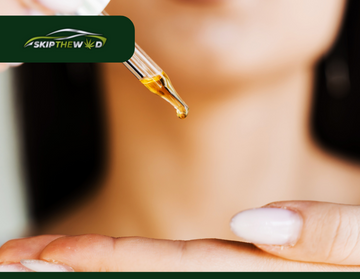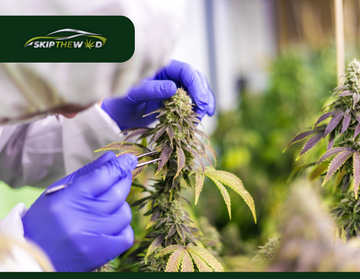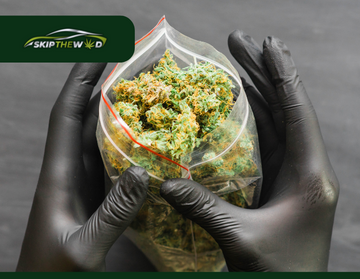Cannabis has long been recognized for its therapeutic properties, dating back thousands of years. In recent years, there has been a surge in interest surrounding two primary compounds found in the cannabis plant: cannabidiol (CBD) and tetrahydrocannabinol (THC). Understanding the benefits and applications of these compounds is crucial for those seeking relief from various medical conditions. While both CBD and THC interact with the body’s endocannabinoid system, they offer distinct effects and benefits. This article delves into the therapeutic advantages of each, providing insight into how they can contribute to health and well-being.
Understanding CBD and THC
CBD and THC are both cannabinoids, but their chemical structures differ significantly. CBD is non-psychoactive, meaning it does not produce the “high” associated with cannabis. Conversely, THC is the psychoactive compound responsible for these effects. This fundamental difference influences how each compound interacts with the body, leading to varied therapeutic outcomes.
The endocannabinoid system (ECS) is a complex cell-signaling system involved in regulating various physiological processes, including mood, pain sensation, and immune response. CBD primarily interacts with the CB2 receptors, which are associated with immune function and inflammation, while THC binds to the CB1 receptors, primarily found in the brain, influencing mood and perception.
Therapeutic Benefits of CBD
CBD has gained recognition for its ability to manage chronic pain. Unlike THC, CBD offers pain relief without the psychoactive effects, making it a suitable option for individuals seeking to alleviate discomfort while maintaining clarity and functionality.
Research indicates that CBD may be effective in reducing symptoms of anxiety and depression. By interacting with serotonin receptors in the brain, CBD can help regulate mood and promote a sense of calm, providing a potential alternative to traditional anxiety medications.
One of the most notable medical applications of CBD is in treating epilepsy, particularly in cases of treatment-resistant seizures. The FDA has approved Epidiolex, a CBD-based medication, for specific epilepsy syndromes, highlighting its effectiveness and safety.
CBD’s anti-inflammatory properties make it a promising candidate for conditions such as arthritis and inflammatory bowel disease. CBD can aid in relieving pain and enhancing mobility by reducing inflammation.
Emerging research suggests that CBD may offer additional benefits, including neuroprotective effects, acne treatment, and improved sleep quality. However, further studies are needed to establish these claims fully.
Therapeutic Benefits of THC
THC is particularly effective for pain management, especially for neuropathic pain. Its psychoactive properties can provide a sense of relief, making it a valuable option for individuals with chronic pain conditions.
One of the well-known effects of THC is its ability to stimulate appetite, often referred to as the “munchies.” This effect can be beneficial for individuals undergoing treatments that affect appetite, such as chemotherapy.
THC has been shown to reduce nausea and vomiting, making it a crucial component in treating patients undergoing chemotherapy. Its antiemetic properties can significantly enhance the quality of life for those facing such treatments.
The psychoactive effects of THC can promote relaxation and a sense of euphoria, which can be beneficial for individuals dealing with stress, anxiety, or insomnia. However, these effects can vary widely among individuals.
THC may also assist with muscle relaxation and improving sleep quality. Its ability to induce a state of calm can be particularly helpful for those struggling with insomnia or muscle spasms.
The Synergistic Effects of CBD and THC
The concept of the entourage effect suggests that the various compounds in cannabis work synergistically to enhance overall therapeutic effects. This means that combining CBD and THC can provide greater benefits than using either compound alone.
Finding the right balance between CBD and THC is essential for tailoring treatment to specific conditions. Some patients may benefit more from higher CBD ratios to minimize psychoactive effects, while others may require more THC for pain relief.
It’s important to note that individual responses to CBD and THC can vary significantly. Factors such as body chemistry, tolerance, and medical history can influence how one reacts to these compounds, highlighting the importance of personalized treatment plans.
Safety, Side Effects, and Legal Considerations
While both CBD and THC are generally considered safe, they can produce side effects. THC’s psychoactive properties may lead to dizziness, paranoia, or anxiety in some individuals, while CBD can interact with certain medications.
The legal status of CBD and THC varies by region, making it essential for consumers to stay informed about local laws. Sourcing products from reputable suppliers is crucial to ensure quality and compliance.
Conclusion
Both CBD and THC offer unique therapeutic benefits, and understanding their differences is vital for those seeking relief from various health conditions. While CBD is often favored for its non-psychoactive properties and versatility in treating anxiety, pain, and inflammation, THC provides effective pain relief, appetite stimulation, and relaxation. Ultimately, consulting with healthcare professionals is essential to determine the most appropriate treatment plan, especially when considering the diverse effects of CBD and THC. For those interested in exploring high-quality CBD and THC products, Skip the Weed offers a range of options to support your wellness journey.









